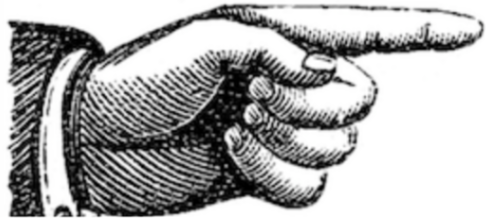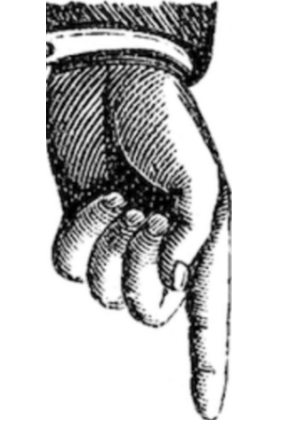Is Diet Really That Important For Alopecia?

Diet Alone Will Not Heal Your Alopecia
Diet is often the first thing people turn to when trying to address alopecia or any autoimmune condition, and when it comes to hair loss, everyone wants to know what to eat to make their hair grow.
But let me just tell you right now: diet alone will not heal your alopecia. It won't take care of your hair loss.
Why Diet Alone Won’t Work
Why is that? Well, alopecia is like a giant puzzle with many different pieces. There are numerous factors that come into play when it comes to regrowing your hair, and diet is just one piece of that puzzle. It’s not a one-size-fits-all solution, and diet alone cannot heal alopecia. If it could, we’d all be cured by now, right?
Diet is important, but it is not everything. If diet were the answer, you would have already healed by now. That’s why it’s crucial to understand that healing alopecia takes more than just food—it requires a holistic approach that addresses the many layers of the issue.
The Importance of a Customized Approach
When it comes to diet, there is no universal solution. Everyone has different dietary habits and preferences. In my program, I tailor the approach to each individual. You have people who are vegan, vegetarian, pescatarian, meat-eaters, people who avoid beef, people who follow kosher diets—the variations are endless. One size does not fit all.
That’s why, in my Hair N' Heal program, we customize everything to your unique dietary needs. You wouldn’t believe how different everyone’s diet is, especially depending on where they’re starting. Some people may already have healthy eating habits, but the specifics matter, especially when dealing with alopecia.
I’ve worked with both adults and children, and depending on their age, their dietary needs can be very different. Customization is key—without it, you could miss out on important aspects that are holding you back from hair growth.
Blind Spots in Diet
Even when people think they’re doing everything right, there can be blind spots—things in your diet that you think are helping, but in reality, they’re hindering your progress.
If you start a program without a customized approach, you could be missing out on the extra step that’s necessary to clear the clutter in your diet. This is why the evaluation process is so important: without it, you might not even realize what’s holding you back.
It’s Not Just About Stress
When I explain to people what I do, and how I help others regain their hair and health back in a shorter amount of time, some people ask, "Is it just stress?" And I say, "No, it's not just stress."
Stress could be a factor, but it is not the end-all, be-all. Alopecia is complex, and we can’t treat it as just one thing. Everything is connected—diet, stress, sleep, lifestyle—all of these things affect each other. You can’t address alopecia with a one-dimensional approach because that’s not how healing works. Everything is interconnected.
Diet Needs to Be Tailored to You
Another thing to consider: depending on where you live and what your environment is like, your dietary needs might differ. For example, a client in Australia has different nutritional needs than someone in the UK, South Africa, the US, Canada, or any other part of the world. Customization is key to addressing these differences.
Now, some people might say, "I’ve tried every diet under the sun. I’ve cut out food groups, taken out dairy, gluten, and nothing works." And again, I’m here to tell you that diet alone will not heal alopecia.
For those of you who are nutritionists, dieticians, or personal trainers, I understand where you’re coming from. You know a lot about macronutrients, micronutrients, and general nutrition. I get it! But when it comes to alopecia, you need to customize the approach.
The Disconnect in Conventional Nutrition
You see, if you’re a diabetic, you need a special diet. If you’re going through chemotherapy, your diet changes. Children have different needs than adults, and if you have alopecia, your diet also changes.
The issue is that mainstream education around diet tends to be very general. I’m not sure what’s taught in schools for nutritionists and dietitians, but from my experience, it’s not as specific as it needs to be. If it were, I wouldn’t have clients who are dietitians, nutritionists, and personal trainers coming to me for help with their alopecia after years of struggling.
There’s a big disconnect in how diet is understood, both by the general public and by healthcare professionals. If doctors and nutritionists had all the answers, then we wouldn’t need to be talking about this. But clearly, that’s not the case.
And that’s where a lot of people get confused—they think they’re eating healthy, but what they’re eating might not be serving their body the way they think it is. For example, years ago, I thought I was eating healthy. I was fit, in great shape, and doing everything right. And yet, I still developed alopecia.
In my case, I had blind spots in my diet. I ate things I thought were healthy—things that doctors and mainstream media recommended—but they weren’t actually healthy for someone with alopecia. That’s the difference.
What you think is healthy may not be the best choice for someone with alopecia. For example, something like grapefruit might be considered healthy, but for some people, it interacts with medications or causes digestive issues. This can affect your healing process.
So, even foods that are generally considered healthy can be problematic for people with alopecia, especially when you’re not aware of how they interact with your body or any underlying conditions.
Understanding Your Unique Needs
If you have food allergies, sensitivities, or certain preferences, those can also be factors that influence your hair growth. There are certain foods that I thought were fine—until I realized they were actually holding me back.
That’s why diet alone cannot heal alopecia. You need to clear the clutter, make adjustments based on your specific needs, and most importantly, customize your diet to suit your individual health and hair growth goals.
Looking Ahead: Fertility and Medications
In our next blog, we’ll talk about fertility—and how most medications, including alopecia treatments, can affect your fertility. The side effects are often under-discussed or even unknown, and it’s something that we really need to address.
I look forward to diving into that topic with you, and how we can better understand the risks of medications when it comes to your overall health.
Take care, and thank you for reading!
Stay connected with news and updates!
Join our mailing list to receive the latest news and updates from our team.
Don't worry, your information will not be shared.






